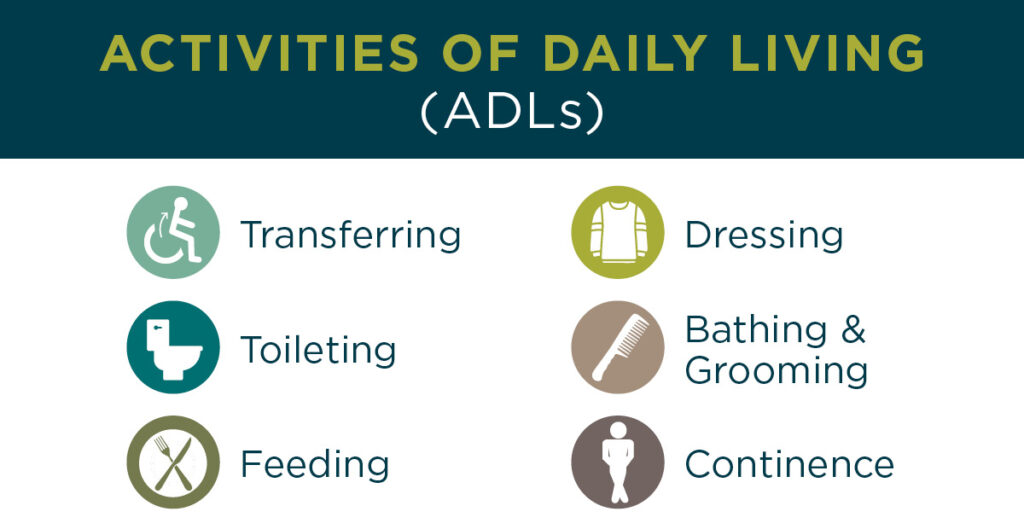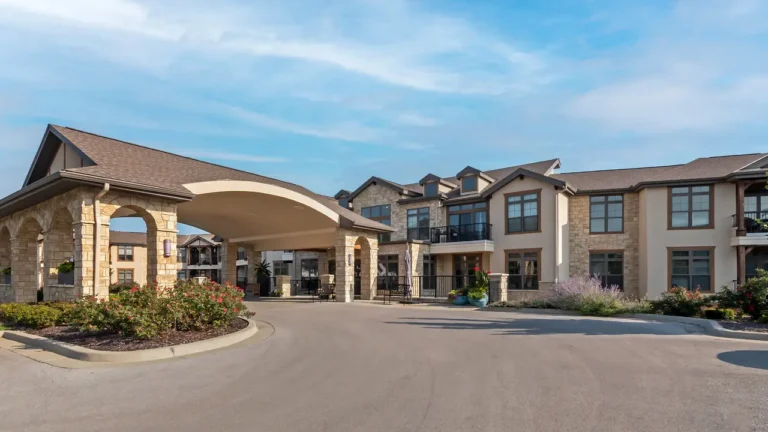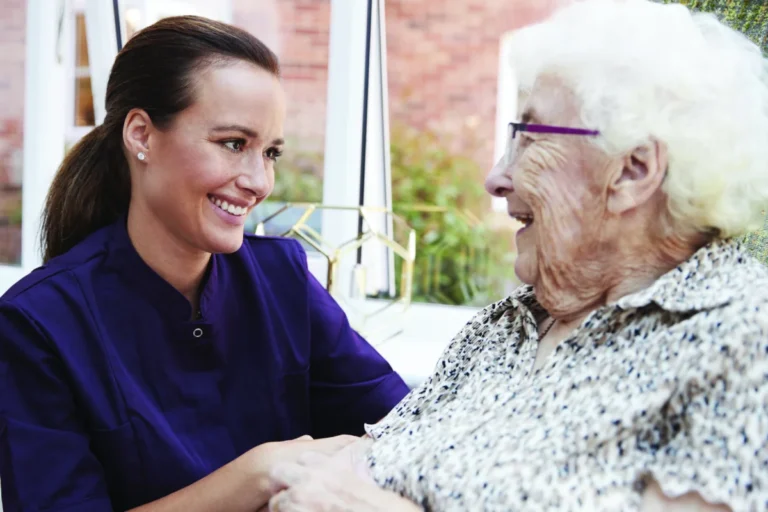There comes a time in everyone’s aging journey when daily activities begin to get a bit harder. When asking family or friends for help is no longer enough. When safety becomes a concern. The idea of a senior living community or full-time care may be a large transition for some seniors; for others, the support and resources are a welcome change.
When it comes time to move to a senior living community, there are many choices available. Different types of facilities or communities provide varying levels of care and offer a variety of services. Facility-based, long-term care services are offered in:
- Board and care homes
- Assisted living communities
- Nursing homes
- Continuing care retirement communities
Assisted living communities are one of the most popular options for seniors who require daily assistance but want to remain active. So, what is assisted living? And when is assisted living needed?
What is Assisted Living?
Assisted living is an ideal choice for seniors who need help with daily care but do not require substantial medical intervention or constant daily assistance. For example, residents at assisted living communities may require assistance with some or several of the activities of daily living (ADLs). The ADLs include:
- Transferring
- Toileting
- Feeding
- Dressing
- Bathing and Grooming
- Continence

Tutera Senior Living & Health Care’s assisted living communities empower each resident to control their daily living and to achieve healthy-as-possible outcomes. Continuing personal growth and learning is encouraged, each resident is made as comfortable as possible, and their health is supported through exercise plans, on-site nutrition and meal service, and on-site medical support. Additionally, care teams at Tutera assisted living communities help residents with self-care and organizational tasks, like managing medication.
Living in Assisted Living
Residents of assisted living communities may live in their own rooms or apartments, but they share common areas, services and dining rooms. Services generally include assistance with personal care, medication management, housekeeping and laundry, on-site security, and social and recreational programs and activities. Socialization is a big part of the culture of assisted living communities. Residents have a full calendar of social, recreational and educational events to fill their days, as well as amenities such as:
- Art studio
- Bistro
- Coffee bar
- Nutritious, delicious dining with restaurant-style menus
- Fitness center
- Happy hours
- Library
- Movie nights
- Pool
- Spa
- Salon and barbershop
Assisted living communities offer the safety and security of 24-hour support and access to care. Day or night, help is only a phone call away. However, privacy and independence are encouraged. At Tutera, assisted living communities will develop a personalized plan that meets each resident’s individual needs and accommodates their challenges, while giving each resident the freedom to do what they can for themselves.
When to Consider Assisted Living
Once it is clear that assisted living is the right choice for long-term care, it is critical to understand when the time is right. So, when should a senior transition into assisted living? What factors should be considered? Here are six signs that indicate when assisted living is needed:
Health conditions are becoming worse.
If a senior has a chronic condition, that condition may become more serious over time. As the person’s daily needs change based on their condition, it can be a good time to discuss quality of life and care needs.
There are noticeable changes in hygiene.
When a senior is no longer successfully managing their own hygiene, it may be time for additional support. Things like brushing their teeth, washing their clothes and trimming their nails can easily impact their overall health and quality of life, especially if these things are not being correctly tended to.
Medications are forgotten or mismanaged.
Medication management is an important part of senior health care. Refilling prescriptions, being aware of potential side effects and taking daily medications are all areas where assisted living communities can support seniors.
There is an increased risk of falls or other safety concerns.
Falling down is incredibly risky for seniors. A fall can cause an injury that changes their mobility level, creates the need for therapies and can even cause other chronic conditions to worsen. Assisted living communities take great care to design their environments to minimize fall risks and to make overall safety a top priority.
The senior is unable to manage bills or appointments.
Keeping track of a calendar, managing a bank account and responsibility for one’s own transportation are all activities required of a senior who lives completely independently. When those things become difficult or impossible, it is time to ask for help.
They’re no longer able to care for the home and yard.
Are there always dishes in the sink? Is the grocery shopping being done in a timely manner? Is the yard being mowed? Are the bathrooms clean? Letting housework and yard work fall behind are often the first signs that a senior is becoming overwhelmed by the tasks needed to maintain their living environment.
As common as the need for assisted living is, there can still be some old-fashioned stereotypes that cause negative feelings about making this move that can make seniors hesitant to transition to a new environment. The best way to alleviate stress and fear in this situation is to begin to discuss the option of assisted living before it is needed.
Moving sooner rather than later can help to ensure better quality of life and better support for seniors and their families. Moving before a lot of support is needed means that seniors can be excited about the new possibilities, enjoy all the opportunities their new home has to offer and relax in the knowledge that they are in the right place to get the right support as their needs change over time.
About Tutera Senior Living & Health Care
At Tutera Senior Living & Health Care, we recognize that, to live your best life, your needs, wants and preferences have to come first. We are committed to:
- Enabling healthy-as-possible outcomes
- Encouraging continued personal growth
- Empowering the ability to direct and control daily living decisions
Each resident’s personal goals and opinions are at the heart of everything we do at Tutera Senior Living. We refer to this as our YOUNITE philosophy – one that is built around you from the very moment you move in and each day after. We get to know your likes, dislikes, goals, dreams and challenges, and we create a unique living and health care experience that is just right for you.
Each Tutera Senior Living community offers services, amenities, team members and culture that work together to encourage residents’ independence and to respect their individuality. Tutera Senior Living has communities that offer:
- Independent Living
- Assisted Living
- Memory Care
- Thrive Memory Care
- Rehabilitation & Extended Stay
- Respite Program
- Home Health
Interested in finding a Tutera Senior Living community near you? Our location finder can help you do just that! Have questions about the care, nutrition planning and culture at Tutera communities? Contact us today for answers!







